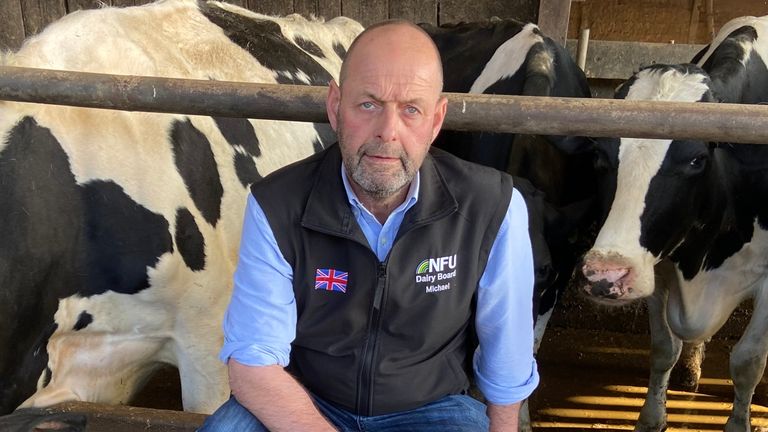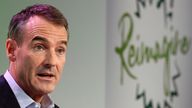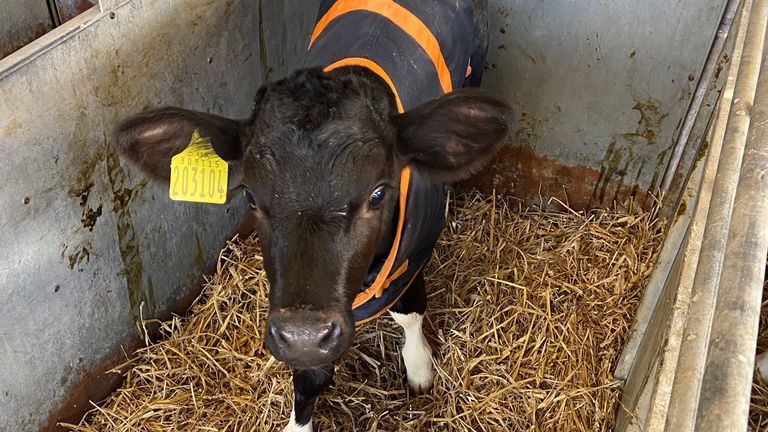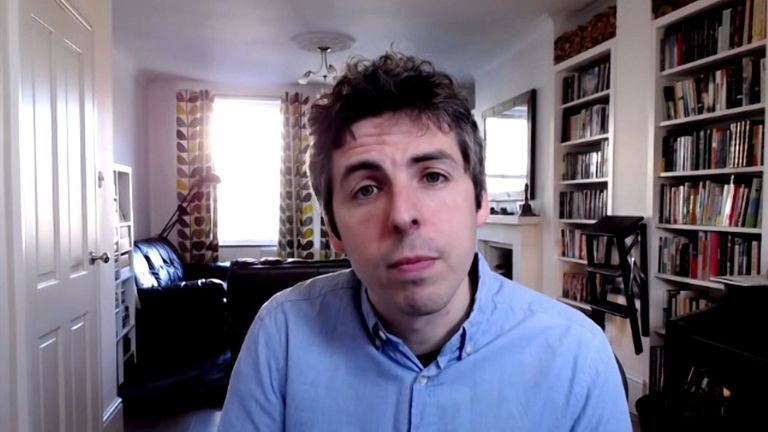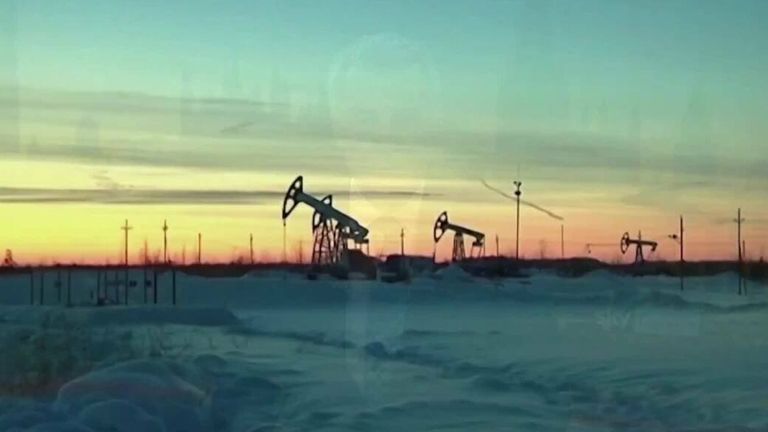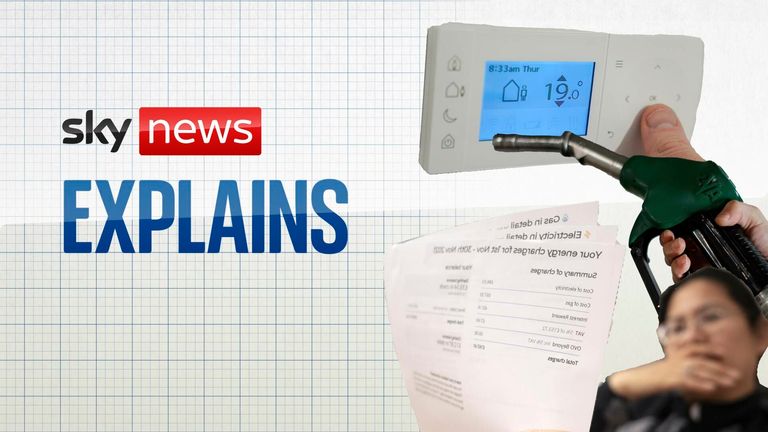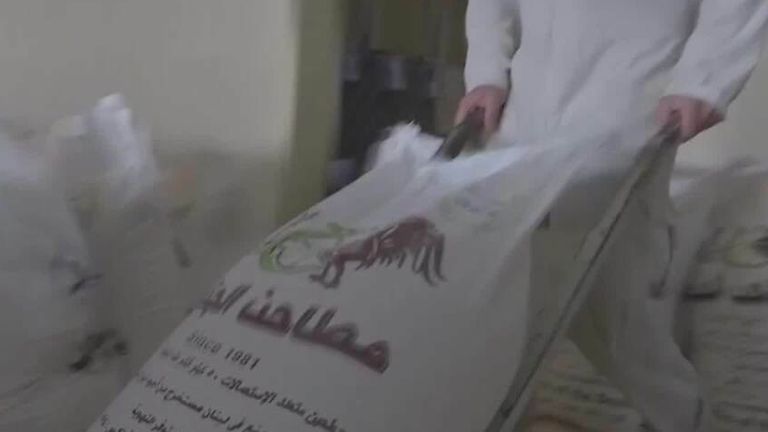Increases in food prices ‘inevitable’ as Ukraine war hits production costs
There’s a warning increases in food prices are “inevitable” as production costs soar due to the war in Ukraine.
It comes as farmers warn the impact on their industry has been “seismic”.
Michael Oakes, Dairy Board chairman for the National Farmers’ Union, told Sky News: “I don’t think anybody in my generation’s ever seen anything like this.
Ukraine war live updates: Russians questioning their government in internet searches
“I think there’s real concern for food security in the UK.
“The amount of food and choice and the price of food and affordability is going to be a big challenge.”
Mr Oakes, who runs his own dairy farm in Worcestershire, says the costs of fertiliser and animal feed have almost doubled since the war began.
He’s had to make the difficult decision in the last week to slaughter some of his dairy herd in order to pay rising bills.
“You’ve got to look at how you can generate cash,” he says. “So we’ve actually sent some cows away early slaughter just to bring in a bit more cash.”
Wheat and fuel costs affected by invasion
Costs had already been creeping up over recent years. First Brexit, then concern over labour shortages were followed by supply chain issues during the pandemic.
But Mr Oakes says price rises since the war in Ukraine began now pose a real threat to the future of his business.
“In January 2021 we were paying just under £300 for a tonne of fertiliser,” he says. “Before the war that had risen to £600.”
“Now it’s £1,000. And we’ve got a 60% increase in feed costs.”
The surge in prices is due to disruption in supply from Russia and Ukraine. The two countries supply around 30% of the world’s wheat.
Rising fuel prices are also a factor.
“If you wanted to buy diesel today and have it delivered to the farm, you couldn’t get a price,” Mr Oakes says.
“They would just tell you what the price was on the day it was delivered. It’s moving that fast.”
He says the average cost of milk production has risen to 40p per litre but only “a handful of farmers” are being paid close to that.
“We’ve got to believe that the price of milk will go up otherwise farmers will cut back and many farmers will go out of dairy purely on an economic basis.”
And he says fertiliser prices mean arable farmers may find it more cost effective to leave fields empty than grow crops.
‘Everyone will be picking up the bill’
Tom Holder from the British Retail Consortium confirmed supermarkets will have to increase the cost of some items.
“I think retailers will always make sure that their suppliers have enough money and they obviously have to negotiate and agree a price that will keep everyone in business,” he says.
“Retailers are there to try and make sure their customers can afford the items they sell and everyone will be picking up a little bit of the bill of these costs along the way.
“Some of that will be passed on to consumers because, simply, there isn’t anyone else to absorb it at the moment.
Follow the Daily podcast on Apple Podcasts, Google Podcasts, Spotify, Spreaker
“As these costs continue to rise, price rises on the shelf become inevitable.”
Earlier this month Environment Secretary George Eustice told MPs his department was “working on a food strategy that will address all these issues right across the food supply chain”.
